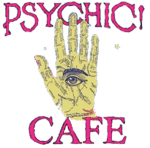by Myra Goodman
Five lessons I continue to learn from my dad, which can “help others realize no matter what hardships you have endured, life can still be experienced as a fulfilling and joyous adventure.”
“To know that we don’t know is the beginning of wisdom.”
I have inherited a complex legacy from my parents. Both of them were Holocaust survivors with massive emotional wounds that impacted my life in countless ways. But my parents also left me with a legacy of searching for healing and spiritual connection—especially my father, Mendek Rubin, who overcame decades of unrelenting depression to become the happiest and most peaceful person I have ever known.
Mendek was a brilliant inventor who, in his mid-40s, was confronted with the fact that achieving every outer success for which he’d ever wished hadn’t eliminated his emotional suffering. So he set out on a quest to mend his mind and heart—which quickly became the focus of his life and his greatest passion.
After he died eight years ago, I discovered an unfinished manuscript detailing his remarkable journey of self-discovery and deep healing. He hoped his writings—now a book called Quest for Eternal Sunshine—would help others realize that no matter what hardships they’d endured, life can still be experienced as a fulfilling and joyous adventure.
Here are five important lessons I continue to learn from my dad.
Stop glorifying your mind
His wisdom: My father observed that human minds can be conditioned to believe virtually anything, so it’s an illusion to consider our beliefs to be facts, when, in truth, they are totally arbitrary. Mendek often contemplated how his life might have been different if he’d been born into another culture, race, or religion, or even if he’d been shorter or taller by 8 inches. He realized his conditioning blinded him, and if he didn’t stop glorifying his mind, he would never be able to experience the marvels of existence beyond what his brain could perceive and explain.
My takeaway: Now, when I feel angry, self-righteous, fearful, or trapped, my father’s wisdom helps me remember my perspective is completely subjective, so I really don’t have to believe my thoughts and give them so much power. “To know that we don’t know is the beginning of wisdom” is a saying of his that swiftly wakes me up.
Don’t be loyal to your suffering
His wisdom: My father said giving up suffering was the most arduous undertaking of his life, and dwelling on the negative was an addiction like any other. Because suffering felt natural to him and happiness did not, he worked to reprogram himself to embrace joy at every opportunity. Through positive affirmations and visualizations, he created new grooves in his mind that enabled him to think and feel differently. My dad’s deep intention to let go of suffering was essential to his success. Even though he had been victimized, he realized he could choose to stop identifying as a victim—a helpless bystander in life who didn’t have the power to create his own destiny.
My takeaway: As a second-generation Holocaust survivor, one of the biggest gifts my father gave me is the deep knowing that there is nothing noble about staying loyal to my suffering. Every day, in big ways and small ways, I hear him encouraging me to choose joy. Now I know the best way for me to honor him is to live a happy and fulfilling life.
Keep a watchful eye on your ego
His wisdom: My father identified that his ego felt most comfortable when he was doing what others thought proper rather than what fulfilled him. He decided to stop letting his ego rule his life or wasting his precious energy seeking approval. My dad made an illuminating list of the behaviors he exhibited when his ego was in charge: being a slave to convention, comparing himself to others, having pride in his ideas and accomplishments, worrying about his image and reputation, and desiring things he didn’t really need (such as compliments and being right).
My takeaway: “When my ego wins, I lose” is a simple saying of my father’s that helps me remember that my ego drives me to choose achievement over self-care, perfection over ease, and validation over harmony. With this awareness, I can stop giving my ego all the authority and live from the inside out—in touch with my true needs and desires—rather than from the outside in—taking my cues from the people and opinions around me.
Presence is where peace lives
His wisdom: Before he embarked on his healing quest, my father said his mind was always busy with a buzzing noise in the background that never stopped. His constant engagement with thoughts prevented him from experiencing the divine firsthand, which made him spiritually starved and reinforced his cynicism and depression.
My takeaway: By the time I was an adult, my father lived his life with true presence—doing one thing at a time and never rushing. His descriptions of the magic, beauty, and peace he experienced rouse me to let go of my ruminations about the past or worries about the future so I can return to this moment, this body, this breath. When I was with my dad, I always felt truly seen, appreciated, and accepted. The way he lived showed me what a gift it is when you are fully present for yourself and others.
Always have faith in the limitless power of love
His wisdom: My dad always said that love is the greatest force in the universe, and he viewed the journey of his life as one of coming home to love. Learning to love himself unconditionally, with patience and tenderness—especially his fearful, lonely inner child—created an internal atmosphere that allowed his deepest wounds to heal and his innate happiness and sense of wonder to awaken and blossom.
My takeaway: My father taught me that our inner world reflects our outer world. A heart full of love looks for beauty and goodness with eyes unclouded by prejudice, and perceives the unity of the entire human family.





